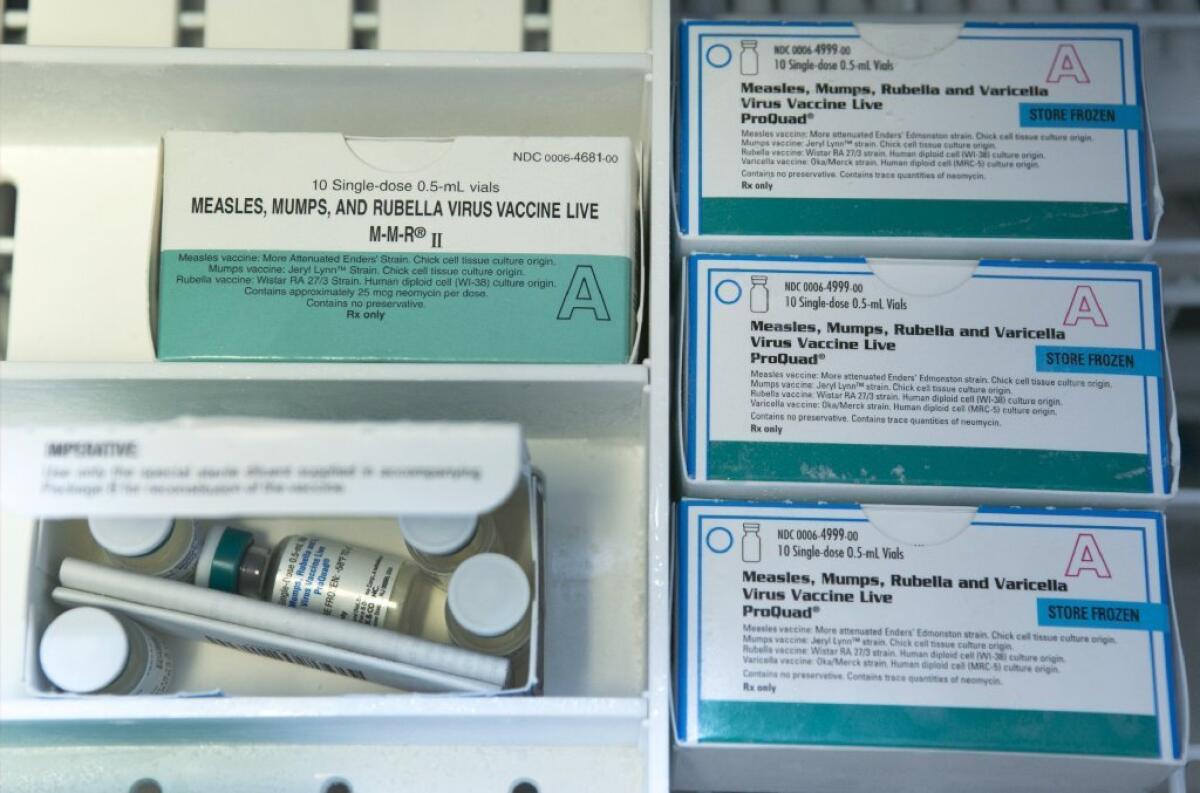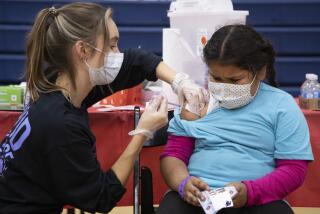Opinion: Finally, California lawmakers say vaccination is a social responsibility

Early this morning, I posted about the newly vocal majority on vaccination—the parents who are willing to fight back against the anti-vaccination trend that has been implicated in the latest outbreak of measles. Cases have reached more than 100.
It’s still surprising to read the number of comments from people who say, why should anyone care? The vaccinated kids are protected. So before moving on to the good news of the day, here are the reasons why parents who vaccinate – and the public at large – have every reason and right to care deeply about this issue:
--Babies are too young to be fully vaccinated, and are also at the greatest risk of death or serious complications from many childhood diseases.
--Some children cannot be vaccinated, because of allergies to the vaccine itself, a weakened immune system or other medical reasons. The latter two groups also are among the frailest group of children, most prone to catching disease and suffering the worst consequences.
--Vaccines for childhood diseases are highly effective—the measles vaccine is 97% effective—but that still leaves a few vaccinated children without immunity.
This is why vaccinating just about everyone else is so important; their immunity keeps the disease out of the community and protects these three vulnerable groups. It is why people are starting to say, in louder voices, that vaccination is not a personal choice in such matters; it is a social responsibility.
The increased recognition of that responsibility is behind legislation announced today by state Sens. Richard Pan (D-Sacramento) and Ben Allen (D-Santa Monica) that would abolish the personal-belief exemption. California is among the minority of states to retain that exemption, which basically allows parents to vaccinate because—they don’t want to, for any reason, even that they feel too busy to take their kids to the doctor.
California is also the state with the lion’s share of measles cases in the latest outbreak.
The bill reportedly is looked on with favor by Gov. Jerry Brown, and that’s important, because Brown insisted on regulations in the most recent legislation on vaccination—allowing a broad religious exemption even to parents learning about the risks and benefits of immunization—that severely weakened it.
In the new bill, exemptions would still be allowed for medical reasons, of course; left unclear so far is how the state would handle cases in which parents seek not to vaccinate their children for religious reasons. All but two states allow religious exemptions, but the results depend on how narrowly such exemptions are defined, and how well the laws are enforced. Very few religions—the Amish come to mind—prohibit vaccination among members. California should write any such exemption tightly; the exemptions should be claimable only by bona fide members of established religions with such rules. No loose memberships in some newly formed Church of Vaccination Liberation.
Follow the Opinion section on Twitter @latimesopinion and Facebook
MORE FROM OPINION:
How secular family values stack up
The lesson behind Robin Williams’ will
Do we really want to read a new Harper Lee novel?
More to Read
A cure for the common opinion
Get thought-provoking perspectives with our weekly newsletter.
You may occasionally receive promotional content from the Los Angeles Times.











